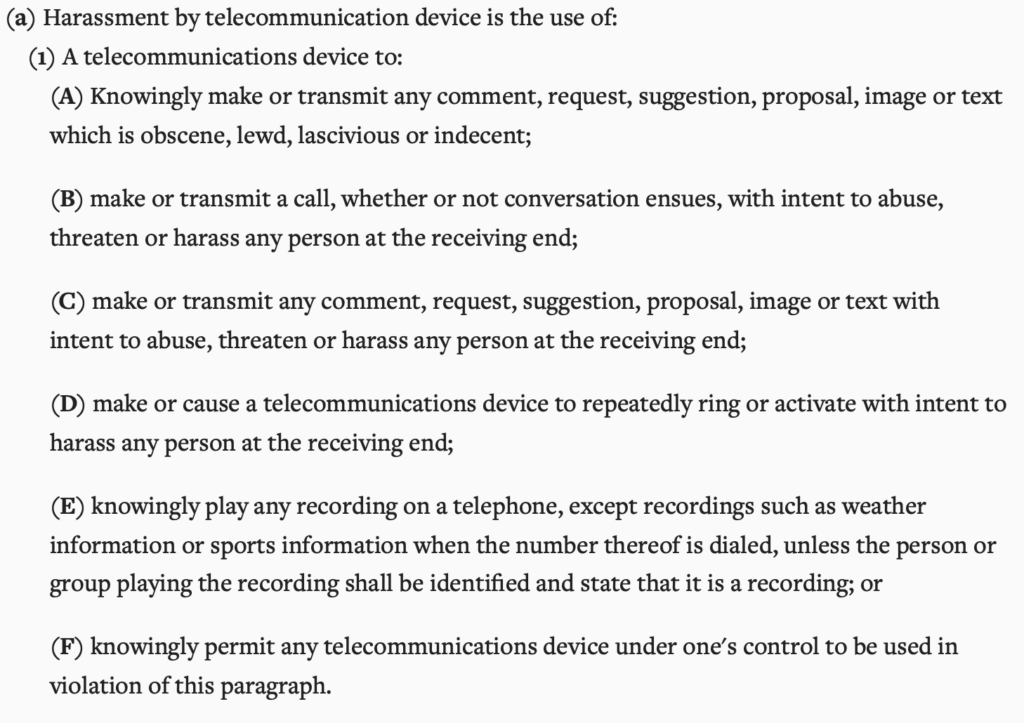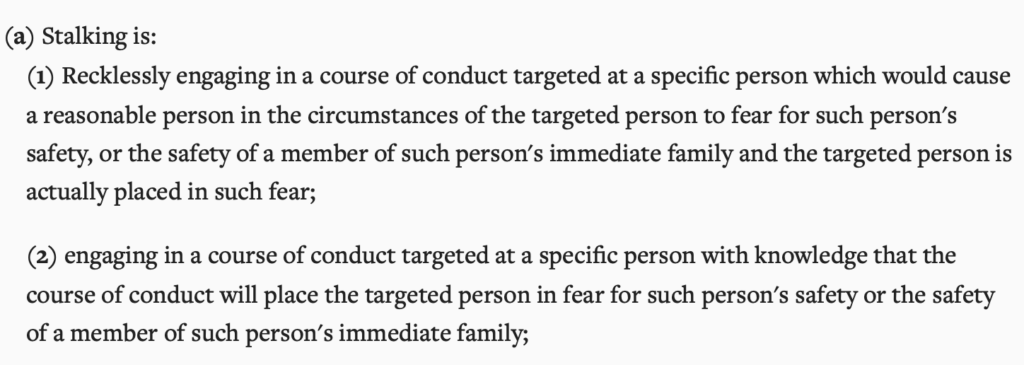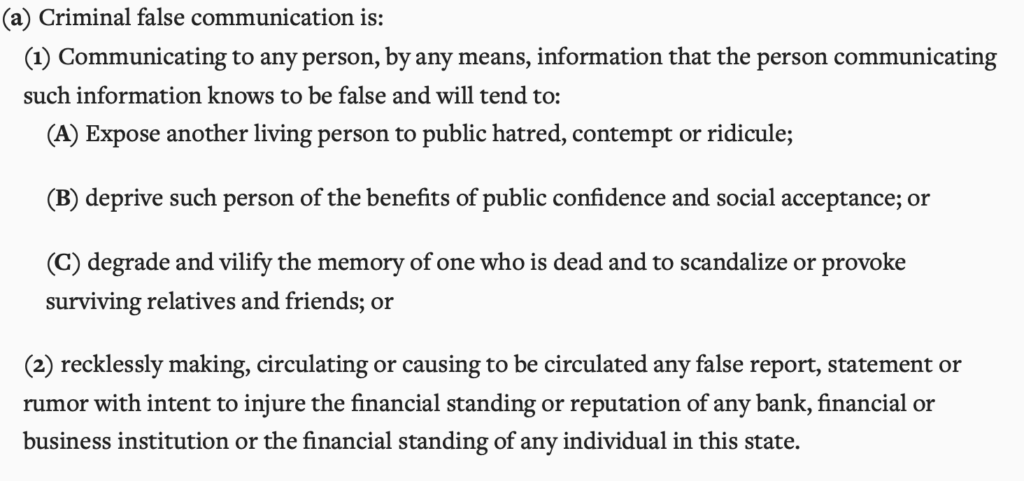Is Doxxing Illegal In Kansas?
Laura Martisiute
Reading time: 5 minutes

Table of Contents
If you’re a Kansas resident and are concerned about having your personal information shared online without your permission, you’ve likely wondered: Is doxxing illegal in Kansas?
Read on as we examine whether it’s illegal to dox someone in the Sunflower State, and look at some criminal activities that are closely related to doxxing that you should be aware of.
Is Doxxing Illegal in Kansas?
The act of doxxing, or publishing someone else’s information online without their permission is not illegal in Kansas in and of itself. However, several activities that can result from doxxing are against the law in the state.
Doxxing Related Activities That Are Illegal in Kansas
Although Kansas doesn’t have an anti-doxxing law, doxing might still lead to certain activities that are illegal in Kansas, including harassment, stalking, and swatting.
Harassment by telecommunication device
When someone sends you obscene or threatening messages (online or otherwise), repeatedly calls you, or allows their devices to be used for such, they are committing harassment (Kan. Stat. § 21-6206) in Kansas.

In Kansas, harassment is a class A nonperson misdemeanor punishable by up to one year in jail and a fine of up to $2,500.
Stalking
When someone knowingly engages in behavior that makes you fear for your safety, they can be charged with stalking (Kan. Stat. § 21-5427) in Kansas.

In most cases, stalking is a Class A person misdemeanor, meaning the offender could be facing up to one year in jail and a $2,500 fine.
If the victim is under 14, the charge is escalated to a Severity level 7 person felony, which carries a penalty of between 11 and 34 months in prison and a fine of up to $100,000.
Unlawful request for emergency service assistance
Knowingly calling emergency services to report a false emergency (Kan. Stat. § 21-6207) is a crime punishable as a Class A person misdemeanor in Kansas.

This crime, also known as swatting, comes with up to one year in jail and a fine of up to $2,500.
If the offender makes a false report and uses an electronic device to mask where they made the report from, it’s a severity level 10 nonperson felony, bringing with it five to 13 months in jail and a fine of up to $100,000.
When the call implies that violent criminal activity is taking place (as in the case of most swatting calls), it’s a severity level 7, nonperson felony coming with between 11 to 34 months imprisonment and up to $100,000 in fines.
The charges escalate up to a severity level 1 person felony if the victim suffers harm or dies, entailing a penalty of between 147 to 653 months in prison and up to $300,000 in fines.
Criminal false communication
Making false statements about someone else (online or otherwise) that could expose that person to public hatred or affect their reputation or financial standing is considered criminal false communication (Kan. Stat. § 21-6103) in Kansas.

Criminal false communication is a class A nonperson misdemeanor punishable by up to one year in prison and a $2,500 fine.
Criminal damage to property
When a bad actor finds out where you live, they could damage your property.
In Kansas, knowingly damaging someone else’s property (Kan. Stat. § 21-5813) is a class B nonperson misdemeanor if the damage is less than $1,000.

It can result in up to six months in jail and up to $1,000 in fines.
If the damage is between $1,000 and $25,000, it’s a severity level 9 nonperson felony, punishable by between five and 17 months in jail and possible fines of up to $100,000.
Lastly, if the damage exceeds $25,000, it’s a severity level 7 nonperson felony punishable by between 11 and 34 months in prison and up to $100,000 in fines.
Is Doxxing Illegal at the Federal Level?
There is no law against doxxing at the federal level, in part because doxxing relies on publicly available information and can be difficult to enforce.
That said, several states – including Arizona, California, and Illinois – have developed and passed their own anti-doxxing laws to protect their residents.
Regardless of whether you have legal protection against doxxing, you should take steps to make yourself as undoxxable as possible to stop it (and the crimes associated with it) from happening in the first place.
How to Protect Yourself Against Doxxing In Kansas (And Elsewhere)
Making yourself undoxxable is generally a matter of shrinking your online footprint, which will have the effect of making your personal information harder to find online.
A good place to start is by doxxing yourself (to do so, follow our guide on self-doxxing using these doxxing tools), which will inform you as to where your data vulnerabilities are and the steps you’ll need to take to close them up.
For most people, becoming undoxxable involves:
- Opting out of data brokers, which are companies that collect and sell your personal information. You will need to opt out of every major data broker with a profile on you – and you’ll likely need to repeat the process continuously, as data brokers notoriously reactivate old profiles when new information is uncovered. As an alternative, consider subscribing to a data broker removal service such as DeleteMe to handle the process for you.
- Changing your social media privacy settings from public to private (here’s how someone could doxx you on Instagram).
- Using different account names to prevent bad actors from following you between platforms.
- Using unique passwords to prevent your accounts from being accessed and data being stolen.
- Removing your data from Google’s services, including Maps and Search.
- Limiting how much personal information you share online.
To find out more, read our guide on how to prevent doxxing.
Our privacy advisors:
- Continuously find and remove your sensitive data online
- Stop companies from selling your data – all year long
- Have removed 35M+ records
of personal data from the web
Save 10% on any individual and
family privacy plan
with code: BLOG10
news?
Don’t have the time?
DeleteMe is our premium privacy service that removes you from more than 750 data brokers like Whitepages, Spokeo, BeenVerified, plus many more.
Save 10% on DeleteMe when you use the code BLOG10.

















